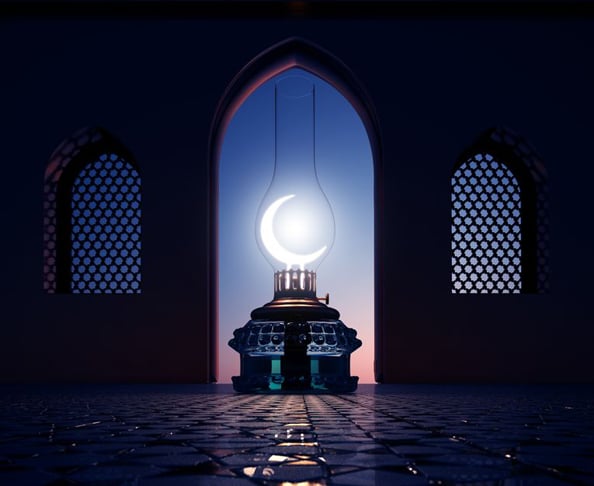From the fasting to the gift giving and essential phrases, here’s everything you need to know.
It’s amazing how many people who live in the UAE don’t actually know the history of the Holy Month. Luckily for those people, we’ve pulled together everything you need to know about Ramadan ahead of its start (which is predicated to begin on Saturday May 27 this year).
The year is believed to have been around 610 AD when lone wanderer Prophet Muhammad (PBUH) pondered about his faith in a desert near Mecca. While fighting a battle of conscience, a soft voice called to him from the night sky. It was the divine angel Gabriel with a powerful revelation that would make religious history, for Prophet Muhammad had been chosen to receive the word of Allah. The revelations, memorised by the Prophet, were later written down as the Qur’an.
Ramadan is the ninth month of the Islamic lunar calendar. It’s commonly known as the Holy Month of fasting ordained by the Qur’an for all Muslims, of the Islamic faith, over 12 years old.
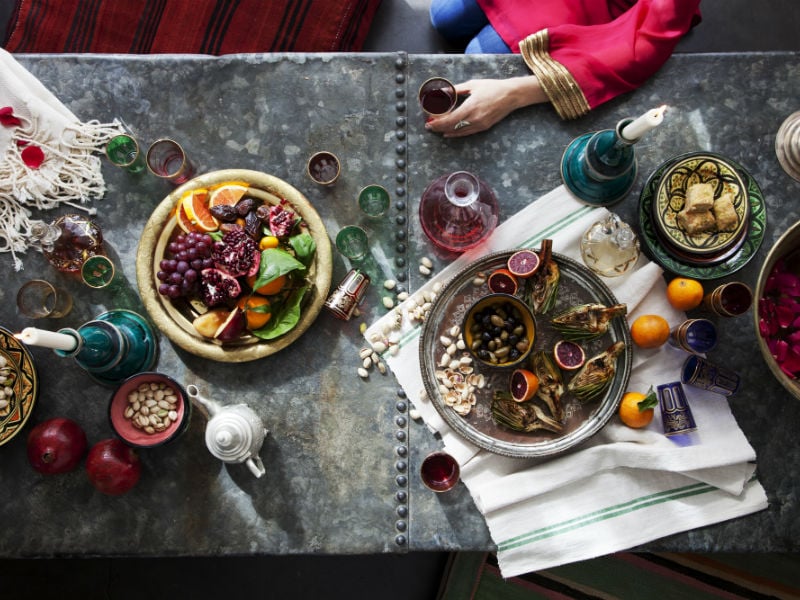
Read:
The Best of The Ramadan Collections You Can Shop Now
10 Royal Looks To Inspire Your Ramadan Wardrobe This Year
The traditional method, followed by Prophet Muhammad, to observe the arrival of the Holy Month is to look to the sky for a visible sight of a slight crescent moon. Obviously in today’s techno-savvy society, telescopes and astronomers now predict the arrival of Ramadan.
Muslims attempt to recite as much of the Qur’an as possible during the important 30 days. Therefore, most mosques recite one thirtieth of the Qur’an each night.
During the entire period of Ramadan, Muslims across the world spend their daylight hours in a complete fast. However, it’s not purely about abstaining from food and water, but all physical needs. The fasting is a time for purifying the soul, re-focusing attention on God and practising self-sacrifice.
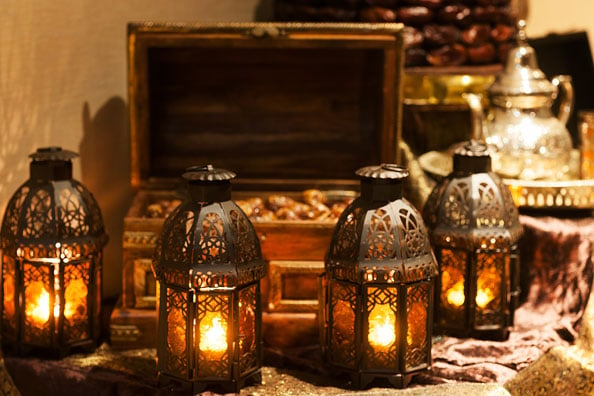
The Arabic word for fasting is “sawn” literally meaning “refrain”. As such Muslims must refrain from all evil actions, thoughts and words. Forgiving those who wronged them, strengthening family ties and eliminating bad habits.
Not everyone must fast during Ramadan, however – young children, pregnant women, the elderly and the infirm are exempt due to potential health complications. If there is a temporary break in the fast, for those who are sick or women on their monthly cycle, they are required to make up the missing days after Ramadan ends. Non-Muslims are not expected to fast, but should behave modestly. For a guide to all the dos and don’ts for expats, click here.
The tongue must refrain from gossip, the ears must refrain from listening to idle and malicious talk, the eyes must refrain from looking at unlawful things and the feet must refrain from going to sinful places. As such the whole body and mind must fast.
Muslims believe it’s easier to be good during Ramadan as the devils will be chained in Hell, unable to tempt believers. Moral actions during this period also bring about a greater reward, because the month has been blessed by Allah.
Fasting occurs between sunrise and sunset. Just before sunrise believers share a meal called Suhour. After this nothing must pass their lips until sunset when the fast is traditionally broken with a date and water prayers are then said before a full meal, called Iftar, is consumed. This spiritual and dedicated process continues throughout the entire month. The discipline reminds believers not only of Muhammad’s experience but of those less fortunate than themselves.
Read:
Lindsay Lohan Reveals She’s Tried Fasting At Ramadan
Your Guide To The Best Iftars And Suhours In Dubai And Beyond
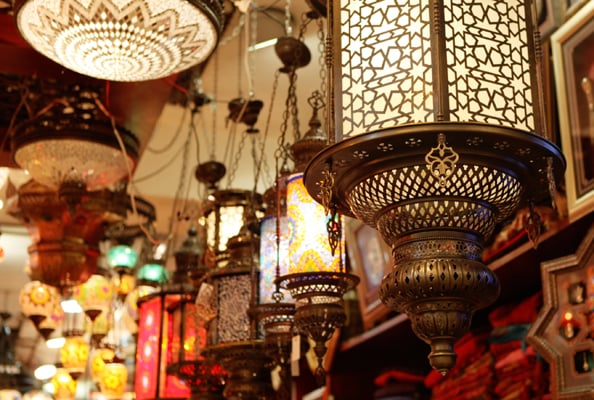
During Iftar most people receive many invitations to break the fast with friends and families. Not only does this increase a sense of friendship and brotherhood but it revives the feeling of spirit in the Muslim community, bringing people together.
At the end of Ramadan, and the subsequent strict fasting and peace-making, Muslims throughout the world observe a joyous three-day celebration called Eid al-Fitr, also known as the Festival of Fast-Breaking.
Eid al-Fitr falls on the first day of Shawwal, the month following Ramadan in the Islamic calendar. During this jubilation Muslims give charity to those in need, and celebrate with family and friends the completion of a month of blessings and joy. Food donations are offered to the poor allowing them to also participate in the celebrations. This act of generosity is known as Sadaqah al-Fitr (charity of fast-breaking).
On the day of Eid, Muslims gather early in the morning in outdoor locations or mosques to perform the Eid prayer. Afterwards the day is spent visiting family and friends, and sharing gifts.
As Almighty Allah put Muslims to test during Ramadan, they understandably feel a great sense of achievement at the end of the month: it is the joy of spiritual fulfillment.
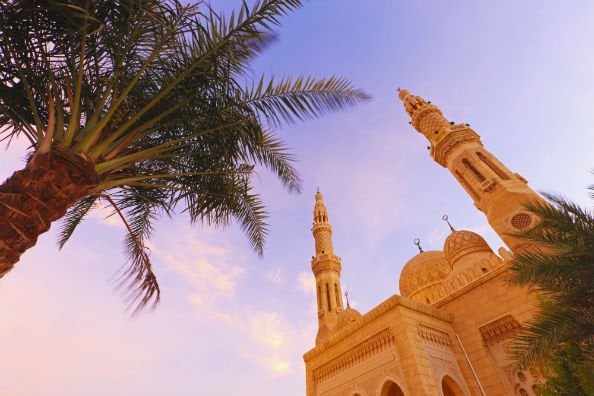
ISLAMIC GLOSSARY
Allah – God
Alhamdulillah – Praise be to Allah
Hilal – The slight crescent moon, first visible after a new moon
Adhan – Islamic call to prayer
Juz -– A section of the Koran equal to 1/30 of the text
Fajr – Pre-dawn prayer
Taraweeh – Evening prayers performed during Ramadan
Ramadan Kareem! – Greeting: Noble Ramadan
Eid Mubarak – Blessed Festival
Zakat – Almsgiving. Wealthy Muslims must pay a certain percentage to aid those in need
Image: 123RF
Words: Alexandria Gouveia








